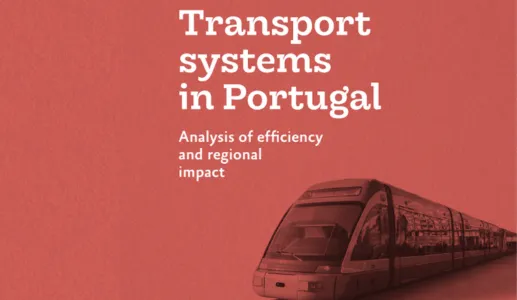
Transport systems in Portugal
The transport infrastructure network is a central element of any economic system and serves as an important lever for development, increasing competitiveness and reducing asymmetries. The transport system facilitates the mobility of the workforce and employer access to dispersed pockets of employment and sources of raw materials. It also guarantees the distribution of goods produced and access to geographically distant markets and consumers. The (proper) functioning of this system is particularly critical in a country with the geographical characteristics of Portugal, whose position is peripheral to Europe's (and the world's) economic and financial centre of gravity and, as such, needs an effective and efficient system to support export activities.
This study by Fundação Francisco Manuel dos Santos aims to provide an analytical perspective on the efficiency of the transport sector in Portugal and the various companies in the different modes of transport it is made up of, from the point of view of the economic dynamics (economic cycles of contraction and growth), financial dynamics (the 2008 financial crisis and consequent intervention by the troika) and political dynamics (privatisations, mergers and the launch of concessions) that have affected the sector, focusing on the following issues:
- What changes have there been in the efficiency of the various modes of transport?
- What impact have public policy decisions had on the efficiency of the system?
- What have the effects of the system and accessibility been on regional productivity?
Through this study, FFMS seeks to contribute to the public discussion around the sector and the different public policy options surrounding it, thus strengthening the decision-making process for the public investment cycle that lies ahead in the 2020/30 period.









